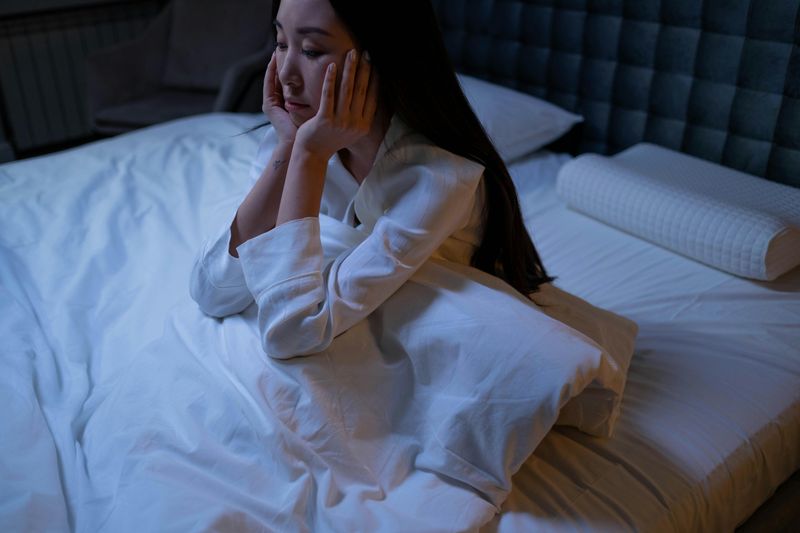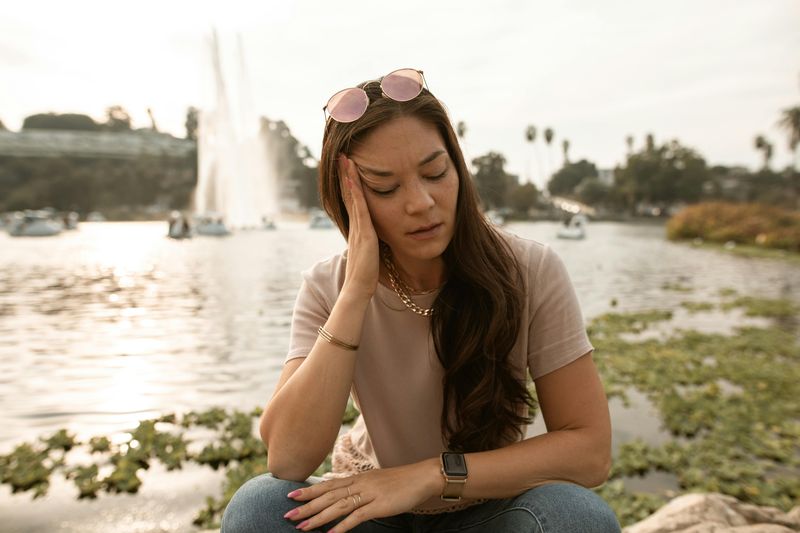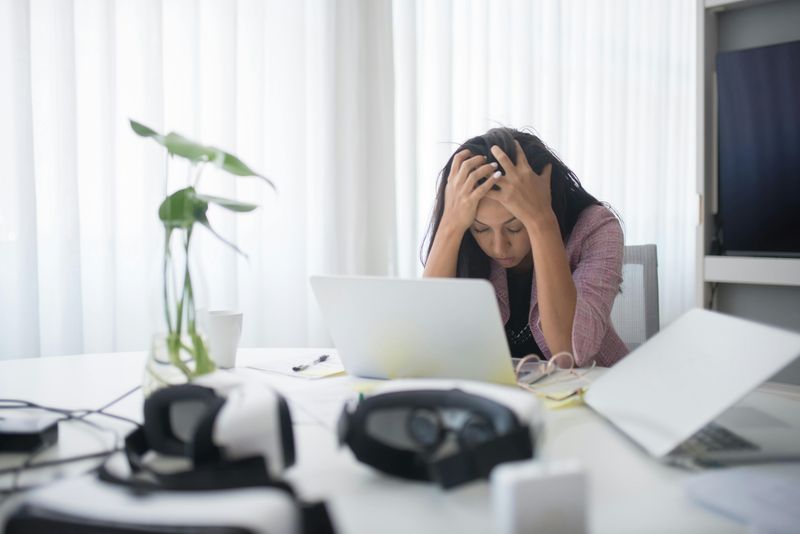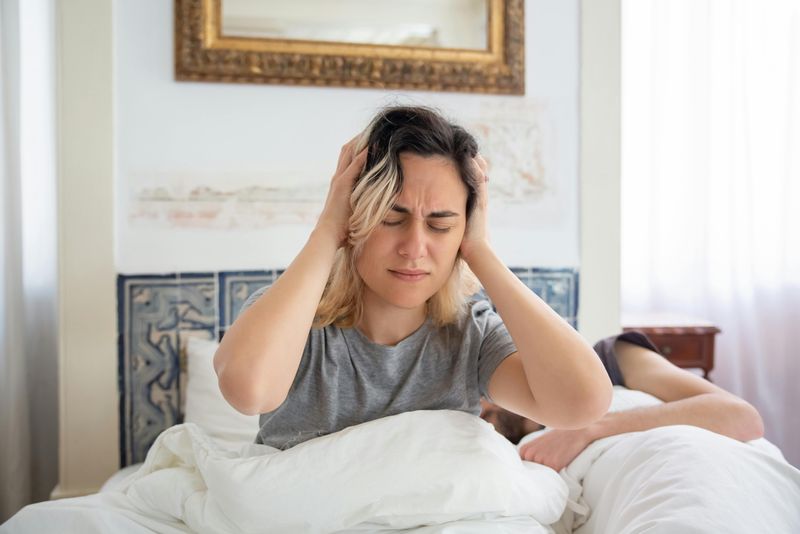Signs Your Fatigue May Be Linked to Anxiety, Not Just Lack of Sleep

Feeling tired all the time even after a full night’s sleep? You might blame your mattress or busy schedule, but anxiety could be the hidden culprit. Many people don’t realize that mental health issues can drain your energy just as much as physical exhaustion. Understanding the difference between regular tiredness and anxiety-related fatigue can help you find the right solutions to feel better.
1. Morning Exhaustion Despite Adequate Sleep

Waking up tired after sleeping 7-8 hours might signal anxiety at work. Your body physically rested, but your mind continued processing worries throughout the night, preventing truly restorative sleep.
This mental exhaustion feels different from regular tiredness – it’s a heavy, foggy feeling that coffee can’t fix. Your brain essentially pulled an all-nighter of worry while you thought you were sleeping.
Many anxiety sufferers report feeling like they haven’t slept at all, even with sleep tracking apps showing adequate hours. This disconnect between sleep quantity and quality is a classic anxiety red flag.
2. Muscles That Never Relax

Constant muscle tension drains energy reserves faster than you’d expect. Anxiety keeps your body in fight-or-flight mode, causing shoulders, jaw, and neck to remain tight for hours without you noticing.
This invisible physical work is like doing a mild workout all day long. By evening, your muscles ache and you’re completely drained, yet you can’t pinpoint why you’re so tired.
Try this quick check: right now, are your shoulders hunched up toward your ears? Is your jaw clenched? Many people with anxiety are surprised to discover they’re tensing muscles without realizing it.
3. Racing Thoughts That Drain Your Battery

Mental energy gets depleted when your brain won’t stop spinning with worries. Those endless mental conversations about what might go wrong tomorrow burn through cognitive resources just like running drains physical energy.
Your mind becomes an energy-hungry engine that never shuts off. People often describe it as “my brain won’t let me rest” – a mental treadmill they can’t step off.
The exhaustion from overthinking feels different from normal tiredness. Instead of the pleasant fatigue after productive work, you experience a frazzled, irritable exhaustion that leaves you simultaneously wired and tired.
4. Afternoon Energy Crashes Without Cause

Sudden energy drops around 2-3 PM might not be from lunch or poor sleep. Anxiety triggers cortisol spikes that initially boost energy but later cause dramatic crashes when levels plummet.
These dips feel different from normal afternoon slumps. Rather than just feeling sleepy, you might experience a wave of complete exhaustion washing over you, making even simple tasks feel overwhelming.
Pay attention to timing: anxiety-related crashes often happen after stressful meetings or difficult conversations. Your body finally releases tension and suddenly crashes, similar to how some people collapse into exhaustion after an adrenaline-filled event ends.
5. Feeling Wired Yet Exhausted

The strange paradox of feeling utterly exhausted while simultaneously unable to relax often points to anxiety. Your body sends conflicting signals – fatigue screams for rest while anxiety keeps your nervous system activated.
This frustrating state leaves you too tired to function yet too wired to nap. Your mind might race with thoughts while your body feels like it’s moving through molasses.
Many describe this sensation as being “tired but wired” – an uncomfortable state where exhaustion and restlessness coexist. This particular type of fatigue responds poorly to typical remedies like caffeine, which often makes the wired feeling worse without relieving the tiredness.
6. Digestive Problems Alongside Fatigue

Stomach issues that appear with tiredness often reveal an anxiety connection. The gut-brain highway works both ways – anxiety triggers digestive problems, which then drain your energy further.
Constant stomach knots, indigestion, or bathroom runs require significant energy from your body. Fighting these physical symptoms all day leaves little energy for anything else.
The combination is telling: when stomach butterflies, nausea or digestive upset regularly accompany your fatigue, it suggests your body’s stress response is activated. This pattern differs from regular tiredness or isolated stomach bugs, creating a distinctive anxiety-related fatigue profile that many sufferers recognize once it’s pointed out.
7. Exhaustion After Social Events

Feeling completely drained after social gatherings might signal social anxiety rather than introversion. While introverts need alone time to recharge, anxiety sufferers experience a deeper, more intense fatigue from the constant vigilance of social interactions.
Your brain works overtime analyzing every conversation, facial expression, and potential judgment. This hyperawareness consumes massive mental energy, leaving you utterly depleted afterward.
Friends might notice you’re more tired than others after gatherings. What looks like a fun evening to others feels like running an emotional marathon for someone with anxiety, requiring days rather than hours to recover fully from the energy expenditure.
8. Fatigue That Vacation Doesn’t Fix

Regular tiredness improves with rest and time off. Anxiety-related fatigue follows you to the beach, mountains, or wherever you escape, because the problem isn’t your environment but your internal state.
Many people feel confused and frustrated when dream vacations leave them just as exhausted as before. Their minds continue spinning with worries about work emails, home security, or travel details instead of relaxing.
This persistent fatigue despite changed circumstances is a key difference between regular tiredness and anxiety. If you’ve taken time off but still feel exhausted on day five of your vacation, your body might be telling you that the source of fatigue isn’t external demands but internal stress.
9. Memory Fog Accompanying Tiredness

Forgetting simple things like where you put your keys might seem like normal tiredness, but paired with constant fatigue, it signals anxiety. Your brain, overloaded with worry, has limited capacity left for everyday memory tasks.
This cognitive fog feels different from regular tiredness. Words escape you mid-sentence, you forget appointments despite reminders, and simple decisions become overwhelming.
Many anxiety sufferers report feeling like their brain is “full” – as if there’s no room for new information. This memory fog creates a frustrating cycle: forgetting things increases anxiety, which worsens fatigue and memory, creating a spiral that simple rest doesn’t fix.
10. Waking Up With A Sense Of Dread

Morning heaviness that makes getting out of bed feel impossible often connects to anxiety, not sleep quality. While regular tiredness feels physical, anxiety creates emotional exhaustion that weighs you down before the day even starts.
This morning dread differs from normal grogginess. Instead of simply feeling sleepy, you experience a wave of overwhelming worry about facing the day ahead.
The sensation is distinctly physical – many describe it as a heavy feeling in their chest or stomach first thing in the morning. This emotional weight burns through energy reserves before you’ve even brushed your teeth, setting you up for a day of fatigue that no amount of coffee can fix.

Comments
Loading…